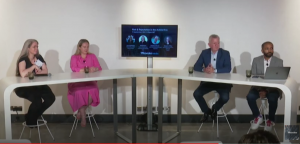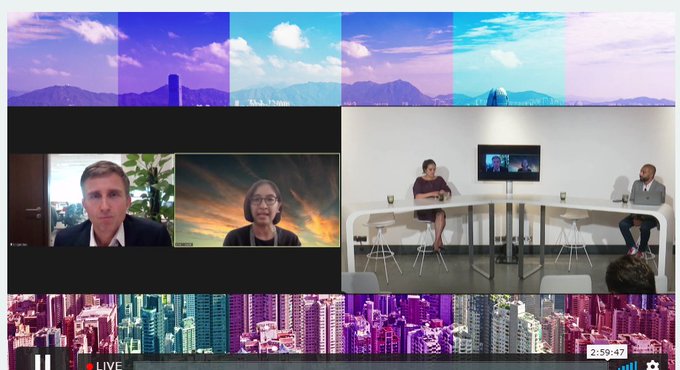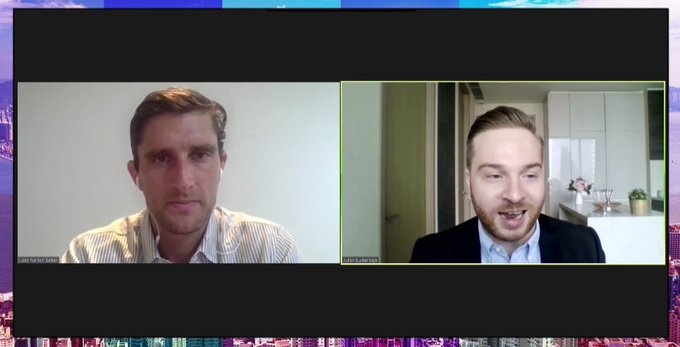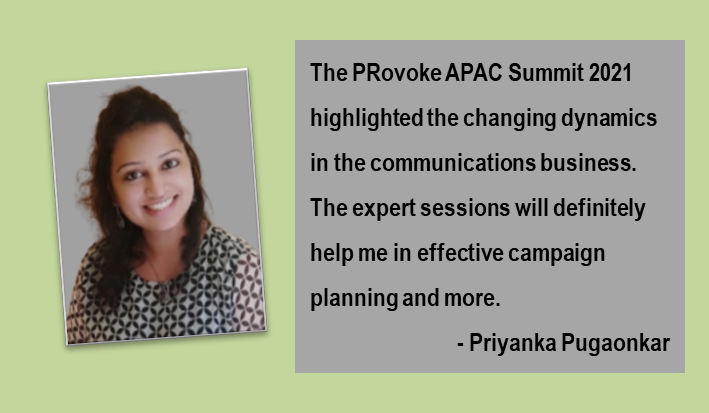Themed as ‘Reset’, the event highlighted the opportunities lies ahead for communicators and brands in the new normal.
Should brands take a stand on a social-political issue risking their reputation? Why should MNCs understand cultural nuances for regional success? How is social value creation gaining prominence in the communication strategy? What restricts communicators from implementing measurement metrics? Renowned communications leaders from Asia – Pacific region brainstormed on critical industry topics at the PRovoke APAC Summit 2021 concluded on September 15th. Themed as ‘Reset’, the event facilitated conversations around the rise of Asia, the impact of socio-political issues on brand communication, flexibility and purpose driven work culture, PR measurement, the role of ESG in marketing communication, communicators’ role in customers digitally empowerment so on. The event was followed by the prestigious SABRE Awards ceremony. Below I point out my six key take away from the PRovoke APAC Summit.
Communication in the era of Activism
In times of increasing crisis and issues management, Corporates are called on to take a stand on controversial geopolitical and social issues. It is a tricky situation for Corporates as speaking on sensitive issues may land them in trouble, whereas keeping silent may also harm their public image. So how can brands strike a balance between risk and reputation in the activism era? An eminent panel consisting of Genevieve Hilton, Head of Communication, APAC Lenovo; Penny Davis, Brand, Customer and Corporate Affairs Director, Bupa and Charles Lankester, EVP, Global Reputation & Risk, Ruder Finn shared their views on the topic.

Genevieve Hilton said that brands should first understand the issue and its impact on the stakeholders. “Communication governance process can help Corporates in addressing social issues, she said. Seconding her view, Penny Davis, brand communicators should see the materiality and relevance of the issue to facilitate sophisticated discussions. On the point should CEOs involve in activism, she said, “They (CEOs) should first look at their internal processes and make changes.” Charles Lankester said maintaining a crisis playbook can help brands handle social activism effectively. “We advise our clients to think like an activist and try to have the playbook written before they get that binary moment of clarifying their position”, he said.
What Rise of East Meant for Global Firms?
Does the rise of the East call for a global attitude adjustment? The panel of Amy Chang, Head of Communications & CSR, Asia Pacific, Deutsche Bank; Douglas Dew, Head of Corporate & Public Affairs, BCW APAC; Azmar Sukandar, Head of Communications & Society, Diageo, APACD President and Arun Sudhaman, CEO/Editor-in-Chief, PRovoke Media discussed the impact of Asia’s growing economic weight on the global brand communication.

“The rise of Asia and Asian middle class presents a range of opportunities and challenges to global companies”, said Douglas Dew. Amy Chang touched upon the diversity and inclusion challenges faced by Asian communicators in MNCs. “The Asia region is under-resourced capacity wise”, she said. Azmar Sukandar said, “MNCs will need to look for more inclusive ways of interpreting success and more inclusive voices in the organizations”, adding, “Balancing competing stakeholders’ expectations will also be critical for organizational success in Asia.”
Why do PR Measurements Matter?
Measurement of PR campaigns is the most important aspect of any communication strategy. However, there is less awareness about the process of measurement and tools available among communicators. Hence, it often lies at the bottom of their campaign management agenda. Andrew Nicholls, Managing Director of CARMA Asia highlighted tools communicators can leverage to monitor and analyse campaigns, reputation and the media landscape. “Media clippings are still the preferred choice to measure PR success. PR professionals should consider other measurement metrics such as AMAC and SaaS based assessment tools for effective PR measurement”, he said.
Kachizukuri PR
Kachizukuri PR simply translates social value creation. Kachizukuri involves understating social needs and issues, leveraging brands’ resources to tackle social problems and sharing these values with the public. Masahiro Makiguchi, President & CEO, Dentsu Public Relations explained why Kachizukuri PR is imperative for new-age communications strategies. “In recent years, we have seen a shift to communication that creates social value. The awareness has increased towards Environment, Social and Governance (ESG) and Sustainable Development Goals (SDGs). Today customers and investors pay more attention to companies’ social initiatives. Therefore, it is imperative for brands to demonstrate their commitment to the society”, he said.
Understanding Behavioral Science
Every country has a unique cultural fabric that has a major influence on the buying habits of people. By understanding customers’ behavioural science, global brands can implement tailor-made communications strategies for long term regional success. Julian Buckeridge, Head of SMARTER at Hill+Knowlton Strategies and Jules Norton Selzer, Corporate Relations Director for Diageo Moët Hennessy discussed how global brands can leverage behavioural interventions to drive effective regional marketing campaigns. The speakers highlighted various research tools that can help brands to understand cultural nuances and customised their marketing plans accordingly.

Hybrid Work Culture Acceptability
The COVID-19 global pandemic has enabled widespread acceptability of hybrid work culture. What does this shift mean for marketing communicators in Asia? Dawn Chia, Head of Employee Communications, LinkedIn, APAC & China; Bhavna Satyanarayan, Head of Communications Services, BASF; Liz Weselby, General Manager, Archetype, Hong Kong and Sarah Crawshaw, Managing Director, AWPeople & Teneo Talent Advisory discussed the new age recruitment strategies that are driven by purpose and flexibility.

Bhavna Satyanarayan said that the new age hiring is purpose-driven wherein employees look for flexibility. “We are giving our employees a lot of empowerment as well as responsibility”, she said. Adding to her point, Liz Weselby said, “We are looking at the right skills and mindset while hiring the talent and giving them flexibility.” The panel also discussed the importance of mentoring and reverse mentoring for talent retention and employee growth and development.
There was an interesting panel discussion on the future of ESG that emphasized on constantly communicating a brand story to investors, employees, media and other stakeholders for a successful ESG strategy. Another session highlighted how healthcare companies leverage innovative ways of communication to digitally empower their customers and safeguard them from the influx of fake news.
The PRovoke APAC Summit 2021 highlighted the changing business dynamics in the communications business. It was the best learning experience for me provided by the School of Communications & Reputation (SCoRe). Though there was no representation from India, the summit highlighted the growing role of India in the global communication landscape. The expert sessions will definitely help me in implementing tips and tricks in the effective campaign planning and I look forward to more such knowledge events to learn and network with industry leaders.
The views and opinions published here belong to the author and do not necessarily reflect the views and opinions of the publisher.



Be the first to comment on "‘Resetting’ Communications for the New World – PRovoke APAC Summit 2021"